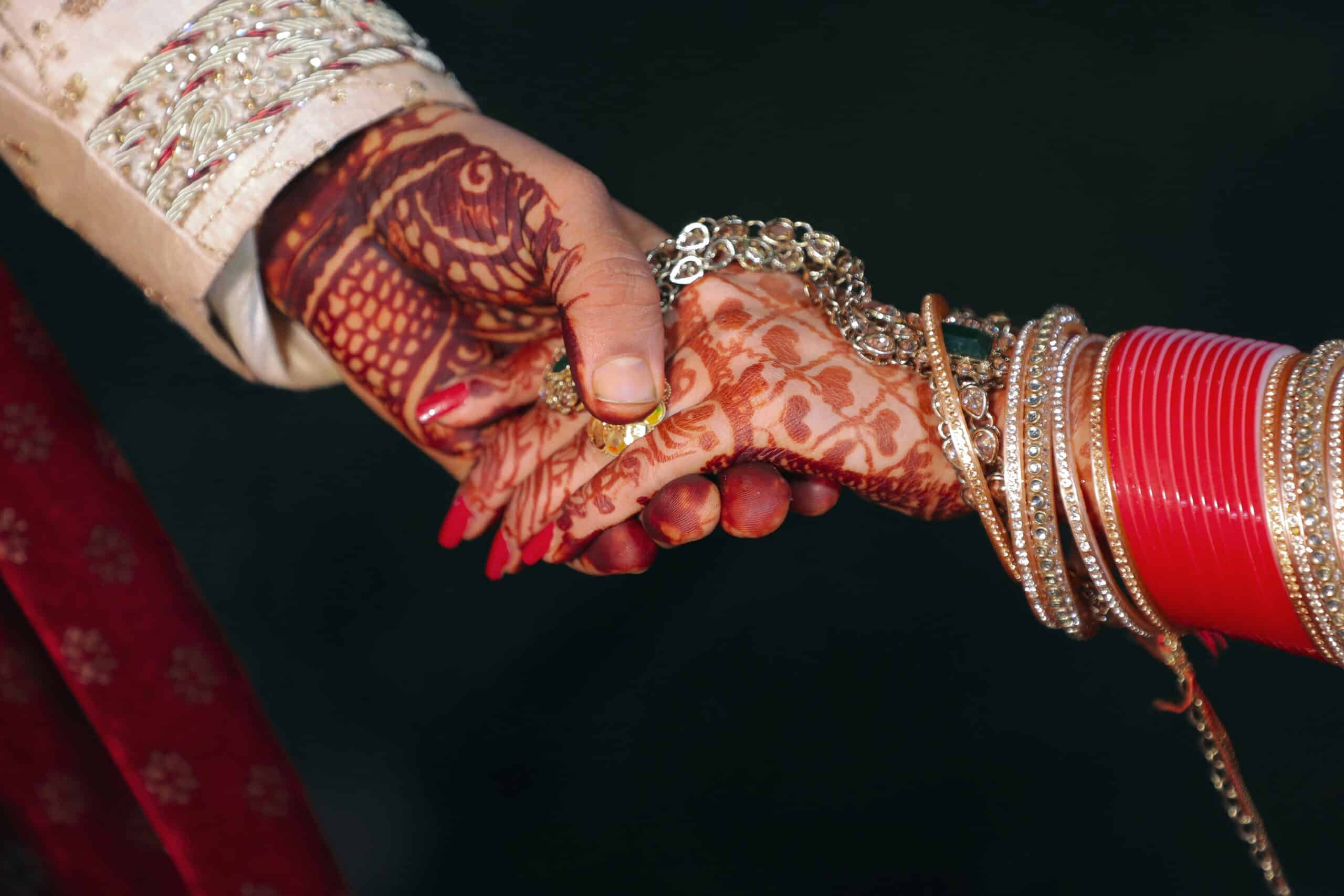What does self-resect really mean for a man or a woman when they are in a relationship or with other family members? Because many people believe when we come in relationships or live with families, we have to adjust a lot and always listen and follow what our elders say though they might be wrong sometimes. Our decisions, advise, hobbies, thoughts, likes, dislikes, dreams, and respect, are all unnoticed when we have elders in our family or a dominating partner. And since childhood we are thought to obey elders and adjust in married life, we also stop focusing on ourselves after marriage and obey others. Our whole life goes on in helping others, raising kids, supporting our partners, solving family disputes, and working in kitchen all day long to cook our family’s favorite food items. In this process, we lose our identity, our real job, our career, our hobbies, happiness, confidence, self-respect, and self-care. Some people might say that according to our religion, this is a women’s job to be at home, cook food, clean the house, obey all the orders of their husbands, and raise children. What they don’t know is that a women’s job is not only to take care of the home or raise kids, their first job is to learn religion, follow it, and help her children and other family members to follow it too. Cooking, serving family members, serving her husband all day long, and cleaning that we do at home all day is not at all accepted as a good deed in Islam. You have to focus more on deen and relationship not on cooking or cleaning. Cleanliness is a very good habit and is also encouraged in all religions but that does not mean wasting all your precious time in washing the walls of your home daily, cleaning the house though it is neat, washing chairs before every use, constantly changing bedsheets after sleeping, trying to remove all the stains from the clothes, sweeping the floor 4 to 5 times a day, etc. Trust me no one sees all this hard work that you do at home. Everyone sees this as a very simple and easy job. No one respects you for this. Unless you are doing this in your job. So, if we want respect from our partners and family members, we have to show them something meaningful and makes them proud of you. And remember that you should never love or respect someone.ore than your god. Because human are weak and make mistakes so we cannot expect anything from them. The more you go close to your god, the more peace you can find.
Even in Islam, the relationship between husband and wife is based on love, mercy, and mutual rights. A wife serving her husband is considered a good deed, but it must always be balanced with kindness, respect, and not at the cost of injustice or abuse. Both husband and wife have responsibilities and rights over each other. A husband is also commanded to serve and treat his wife with love and mercy. The Prophet used to help in household chores, mend his own clothes, and treat his wives with kindness. Serving the husband is an act of love and worship for a woman if done sincerely for Allah. But it does not mean slavery or tolerating oppression. Islam commands kindness both ways. So, serving your husband is encouraged, but it should be mutual, the wife cares for the husband, and the husband also cares, protects, and serves his wife.
We woman have to focus more on deen, aakhira (Day of judgement), Quran, namaz, religious teachings, self-care, serving the society within limits and Parda (cover their bodies modestly), raising kids with care, and our purpose of life on earth instead of just cooking, cleaning, washing, dusting, and raising children. But many women don’t understand this, or they were never thought of this since childhood. And some men use this as a tool to control their wives or dominate them in every way possible. By not allowing them to talk to their parents, not allowing to go outside, not allowing to meet friends, complaining on everything, emotional abuse, physical abuse, telling bad words, disrespecting, not taking proper care of her, ordering them to cook for their families and friends every day, etc. In Islam, women also have their own identity, their own decisions, advises, careers, and self-respect. In Islam, not only is committing oppression (zulm) is forbidden, but also remaining silent in the face of oppression or accepting it without resistance is discouraged and considered sinful. Tolerating oppression is a sin. This is how Islam teaches us how self-respect is very important for a man or a woman to live a peaceful life on earth. We should never be the slaves of other people except Allah. And if someone treats you like that, you have to either question them or leave the relationship if you think there is no use in telling or making them understand. You should understand that when you don’t stand for yourself, everyone will let you down. You should have your own voice. Don’t be afraid of society, family, kids, partner feelings, and parent’s emotions. When you are right, Allah will help you and guide you slowly. Believe in him and wait for the magic to happen. But never lose your self-respect for others or be silent when others are pointing fingers on you.
Many people confuse self-respect with ego. They are not the same. When we stand for ourselves in front of society, people tell we are arrogant, selfish, and egoist. They don’t understand the minor difference between the two. For example, saying “I deserve to be treated fairly”, is called self-respect. Saying, “I am better than everybody else”, is ego. Ego is the letter “I”, “Me”, “My”, and “Mine”. Egoist people want recognition, control, and to feel important. They never admit their mistakes and never tell sorry. It also leads to pride, arrogance, and conflicts. Ego is our sense of self. A balanced ego helps us live confidently, but too much ego leads to pride and arrogance, while too little causes insecurity. In spirituality, ego is seen as the false self that blocks inner peace. While self-respect means valuing yourself, setting boundaries, standing up for yourself when you are right, telling the truth to others though it hurts them, proving your points without any hesitation, telling sorry when you are wrong, speaking up for yourself or your family, and not letting others treat you badly or poorly. That why its very important to understand both the concepts deeply to know which one you are following to protect yourself.
What is Self-respect?
Self-respect means having a healthy sense of your own dignity, worth, and value as a person. It’s about treating yourself with honor and not allowing others to treat you in ways that are degrading, unfair, or harmful. Understanding that you deserve respect, kindness, and fairness. Saying no when something goes against your values or harms you. Believing in yourself but not looking down on others. Living by your principles, even when it’s hard. Looking after your physical, emotional, and spiritual well-being. If someone tries to insult you, self-respect means not accepting their insult as your truth and calmly standing up for yourself. If you make a mistake, self-respect is admitting it and correcting it, instead of feeling worthless. Self-respect is the balance between humility and dignity — not thinking too little of yourself and not thinking too much.
What is Ego?
Ego is the sense of self that makes us feel like an individual, separate from others. It is the part of the mind that says “I, me, and mine.” Ego plays an important role in shaping our personality, our choices, and how we relate to the world. Ego also helps us to survive and function in society. A healthy ego is important because it gives us confidence, allows us to respect ourselves, and helps us set boundaries with others. However, when ego grows too strong, it can make us arrogant, stubborn, and overly proud, always wanting to be right or superior. This type of ego often creates conflict in relationships and prevents real happiness. On the other hand, when the ego is too weak, we may feel insecure, lack self-worth, or depend too much on others for approval. In spirituality, ego is often seen as a false identity we create by attaching ourselves to roles, possessions, status, or opinions, which keeps us away from our true self and inner peace. Many spiritual traditions encourage reducing or transcending the ego so that we can experience humility, compassion, and unity with others. Ultimately, ego is not entirely bad—it is necessary for daily life—but it must be balanced and controlled so that it serves us rather than controls us.
Difference between self-respect and ego/pride: –
Self-Respect:
If someone mistreats you, you say calmly: “I deserve respect. Please don’t speak to me like that.” You think I am valuable, and so are you.
-
It is based on truth, dignity, and balance.
-
Means you value yourself without putting others down.
-
Helps you set healthy boundaries while still being kind.
-
You know you’re worth but also acknowledge others’ worth.
Ego / Pride (Arrogance):
If someone advises you, ego makes you reply: “Who are you to correct me? I know better than you.” You think, I am valuable, and you are less than me.
-
It is based on false superiority and inflated self-image.
-
It means you think you are better than others.
-
Often makes a person stubborn, harsh, or disrespectful.
-
You start ignoring your own faults while looking down on others.
Practical tips to build self-respect without falling into ego: –
- Know Your Worth and stay Humble: – Remind yourself: “I am valuable because God created me with purpose.” Appreciate your qualities but remember that others have their own strengths too.
- Set Healthy Boundaries: – Say no when something harms your dignity, faith, or peace. If someone pressures you to do wrong, politely but firmly refuse.
- Keep Integrity: – Do what is right, even when no one is watching. Integrity makes you respect yourself without needing others’ validation.
- Accept Mistakes Gracefully: – Self-respect means admitting when you’re wrong, instead of pretending to be perfect. Ego says: “I can’t be wrong.” While Self-respect says: “I made a mistake, but I can learn and grow.”
- Treat Others Kindly: – True dignity is shown by how you treat people weaker than you. Self-respect grows when you respect others.
- Balance Confidence & Gratitude: – Be confident in your skills, but always say: “Alhamdulillah, this ability is from Allah.” Gratitude protects you from arrogance. Every night, ask yourself — “Did I honor myself today without hurting anyone’s dignity?” That reflection keeps self-respect strong and ego weak.
Self-respect in modern relationships and Marriage: –
Self-respect in modern relationships is about valuing yourself enough to communicate openly, set boundaries, maintain independence, and refuse toxic dynamics—all while fostering mutual respect. Without it, relationships risk imbalance, resentment, or emotional exhaustion. Respect yourself but never let it turn into arrogance. Nowadays, everything changed on how relationships work. In olden days, husbands were dominating in the house, and everyone listened to them and made them superior to others. But now, as both men and women are studying, working, and earning together, both wants to be superior to the other. Nowadays self-respect is not about standing for yourself when your husband is abusing you or you’re in laws are treating you as a maid, now it is standing up for quality time with your partner, spending equally on home, speaking up for your mental health, solving family conflicts, living up the way you like, proving yourself when you are correct, and standing up for your career and your goals.
Discover more from supermomsclub
Subscribe to get the latest posts sent to your email.





